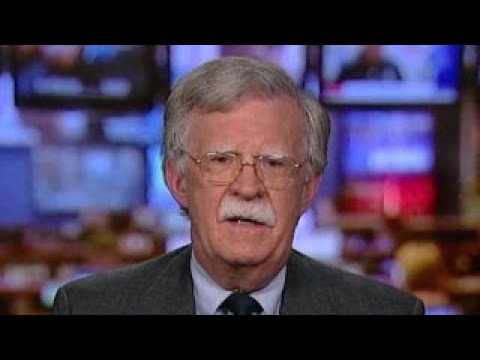
Venezuela has repeatedly hit the front page news over the past few months, first with the re-election of Maduro as president and most recently with the sabre-rattling from the United States who wants to replace the elected president with a hand-picked successor. In general, the world, particularly the United States, pays relatively little attention to election results in developing economies, however, there is one main reason why Washington cares about what happens in Venezuela; oil.
Venezuela has been an oil producing nation since 1914 when commercial oil was discovered on the Easter shores of Lake Maracaibo. Venezuela is a charter member of OPEC, joining/founding the group as a founding member in September 1960 along with Iraq, Iran, Kuwait and Saudi Arabia. In the decades that followed, Venezuela became a world leader when its oil sector is measured in terms of proven reserves as shown on this graphic:
In total, Venezuela’s proven oil reserves of 302.81 billion barrels represents nearly one-quarter of OPEC’s total reserves, surpassing the proven oil reserves of Saudi Arabia by just under 40 billion barrels.
Here is a map showing Venezuela’s oil infrastructure:
Venezuela’s oil is found in two main belts; the Orinoco belt and in the region around Lake Maracaibo located in the west of the nation. Most of Venezuela’s conventional crude oil is heavy and sour and requires specialized refining. Here is a table showing Venezuela’s oil crude grades:
In January 1976, Venezuela nationalized its oil industry under the economic plan “La Gran Venezuela”. It was at this time that the state-owned Petroleos de Venezuela S.A. (PdVSA) was launched as a replacement for all foreign owned oil companies that were doing business in Venezuela. In the early 1990s, Venezuela re-opened parts of its oil industry to foreign investors in an attempt to gain technical knowledge to help increase their flagging oil production. In 2002, conflicts between the state-owned oil company and its employees led to a massive strike which ultimately led to the laying off of thousands of highly experienced oil sector workers. As a result, crude oil production never recovered to its pre-2002 levels. In 2006, then President Chavez implemented a nationalization of oil exploration and production, requiring that joint ventures with PdVSA provide a 60 percent minimum share for PdVSA. Here is a table showing PdVSA’s crude oil loading terminals and their participating companies:
While Venezuela’s oil reserves are massive, the same cannot be said for its crude oil production as shown on this graphic:
As of May 2018, Venezuela’s daily oil production fell to a 30 year low of 1.4 million BOPD, however, even at that level, Venezuela is still the 12th largest oil producing nation in the world.
One of the problems facing Venezuela’s oil industry is a lack of capital investment by the state-owned petroleum company Petroleos de Venezuela, S.A. (PdVSA) which has led to decreased capital investments by its foreign partners. As show on this graphic, this has led to a drop in the number of active oil rigs which has dropped from around 70 in Q1 2016 to 25 in Q3 2018:
As I noted above, Venezuela’s production of oil has dropped substantially over the past decades. This has had an impact on its crude exports to the United States, India and China (among other nations) as shown here:
At 1.1 million BOPD in Q1 2018, Venezuela’s oil exports are 33 percent below their level in 2016.
As one of Venezuela’s largest oil consumers, the United States also saw the volume of its crude imports from Venezuela drop from 840,000 BOPD in December 2015 to 506,000 BOPD in October 2018 as shown here:
In fact, if we look further back in time, U.S. imports of Venezuelan crude were as high as 1.1 million BOPD in 2007, putting the nation in third place after Canada and Saudi Arabia when measured in terms of oil supplied.
With massive oil reserves of over 300 billion barrels and Venezuela’s close geographic proximity to the massive American market (particularly when compared to the Middle East), it is no wonder that Washington has such a keen interest in what happens in Venezuela, particularly given that it could prove to be America’s key supplier of oil in the future. While the United States is currently experiencing an oil production windfall, the high decline rates of non-conventional oil production (i.e. fracking/horizontal drilling) will ultimately result in a very significant need for additional imports of oil. Venezuela is the most likely candidate to fulfill America’s never-ending need for oil.
Click HERE to read more from this author.
You can publish this article on your website as long as you provide a link back to this page.

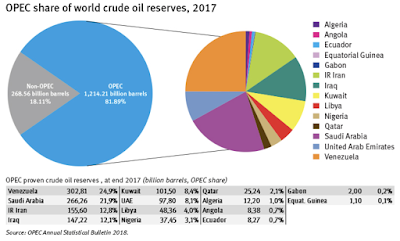
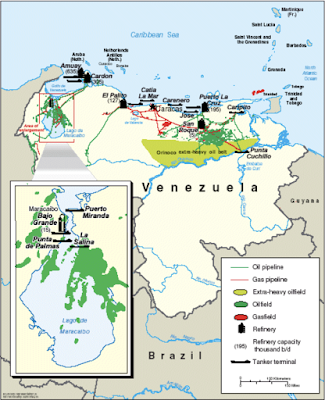

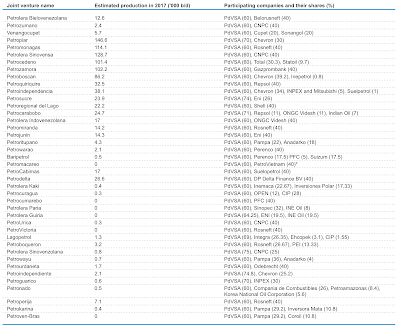
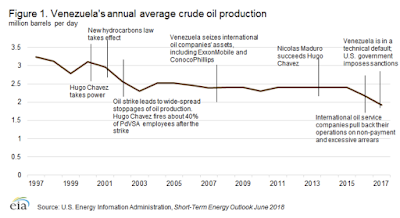
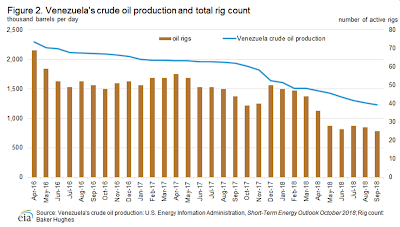
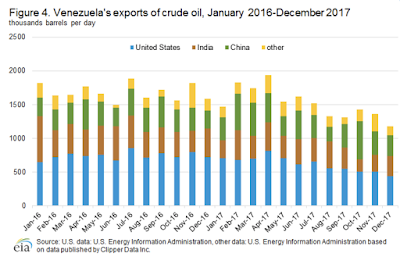
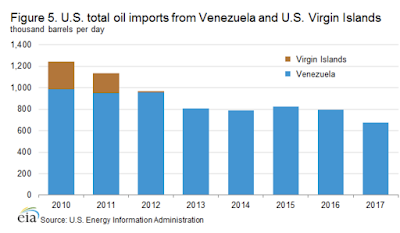
One of the best explanations about current situation in Venuzeula I have read. What most people don’t realize is the US is in iminent danger of being short of oil. These shale oil wells that are currently feeding their massive prduction only have a usefull lifespan of about 5-6 years with production decreasing at 50% per year. They are already starting to feel the crunch. In 2-3 years the shale boom will be over.